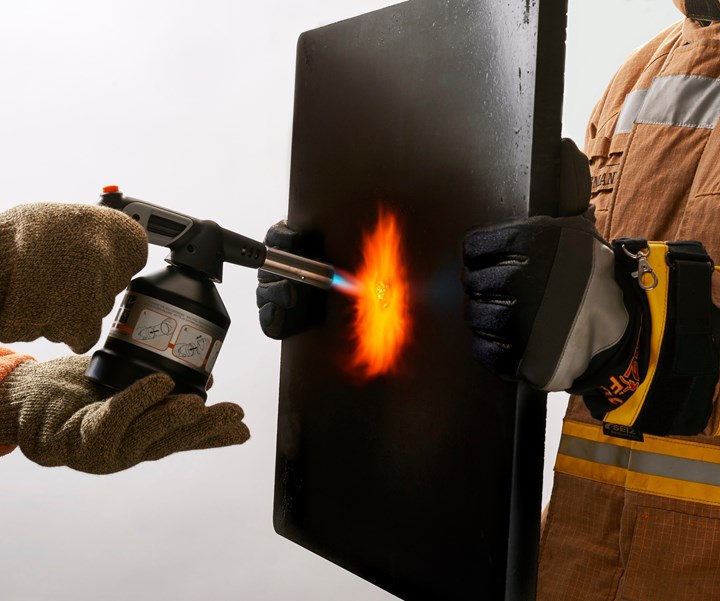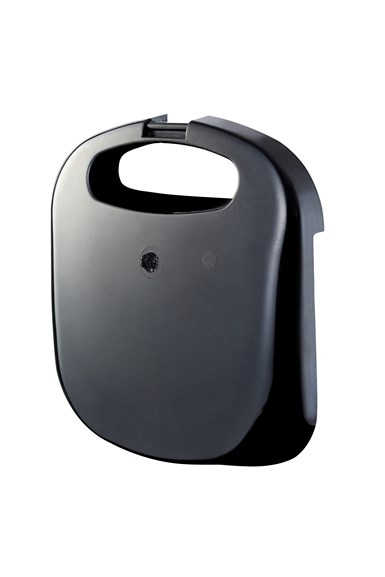Foam materials for injection or compression molding
Hexion Inc.’s Bakelite FoamSet materials offer flame retardance for lightweight construction applications.

Source | Hexion
Hexion Inc.’s (Columbus, Ohio, U.S.) Bakelite FoamSet materials are injection and compression moldable foam materials for lightweight construction applications. They are said to provide heat stability with low thermal expansion, strength for screw connections, fire resistance and reduced smoke and toxicity.
Other advantages reportedly include high flame retardance, good thermal insulation properties, high temperature resistance, low specific gravity, high specific strength and stiffness, high chemical resistance and a self-foaming formulation that does not require an additional technology.

Source | Hexion
The materials are supplied as free-flowing granules and are processable by injection and compression molding as well as by continuous extrusion. Users can achieves ranges in thickness between 1.5-30 mm and at a density of 0.85 g/cm3. According to the company, storage stability of more than one year is guaranteed.
Hexion says Bakelite solutions offer efficient and time-saving foaming thermosetting materials at 50% weight reduction. Based on its glass-fiber reinforcing system, the Bakelite FoamSet products offer foamed materials with maximized mechanical performance and high fire resistance. Possible applications include floorings, fire protecting applications, isolating and force transferring mounting systems, and lightweight construction.

Soure | Hexion
The new material, which was financially supported by the Federal Ministry for Economic Affairs of Germany, was funded within the framework of the 6th Energy Research Program of the German Federal Government and supervised by Forschungszentrum Jülich, the project executing organization. In addition to Hexion GmbH, the project consortium consists of KraussMaffei Technologies GmbH, KraussMaffei Berstorff GmbH, EJOT Baubefestigungen GmbH, Schöck Bauteile GmbH, Robert Bosch GmbH and the Plastics Engineering of the Department of Mechanical Engineering at the Institute of Materials Handling, Conveying and Plastics Engineering located in the Technical University of Chemnitz.
The consortium focused on utilizing phenolic molding compounds for energy-optimized construction. Phenolic molding compounds, which are said to provide both high insulating and material strength properties, can be processed using cost-efficient manufacturing processes including extrusion and injection molding to produce self-supporting insulating components in custom and potentially demanding geometry shapes.
Related Content
-
Welding is not bonding
Discussion of the issues in our understanding of thermoplastic composite welded structures and certification of the latest materials and welding technologies for future airframes.
-
Jeep all-composite roof receivers achieve steel performance at low mass
Ultrashort carbon fiber/PPA replaces steel on rooftop brackets to hold Jeep soft tops, hardtops.
-
Plant tour: Airbus, Illescas, Spain
Airbus’ Illescas facility, featuring highly automated composites processes for the A350 lower wing cover and one-piece Section 19 fuselage barrels, works toward production ramp-ups and next-generation aircraft.

.jpg;width=70;height=70;mode=crop)














